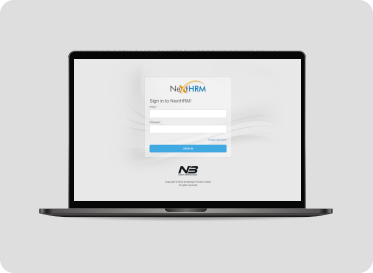360° Digital Solutions Under One Roof
We make good engineers. They, in turn, make good software.
Our Clients






Our Clients






What We Offer
Nextbridge is a software development company based in Lahore, Pakistan that is devoted to providing innovative software solutions to startups, SMBs, and large enterprises. Partnering with us will help you obtain a competitive edge in the market through high-quality custom development services. The most influential design, business, and technology talents that exist in the business will be made available to you. You demonstrate your idea and together we will learn about the right audiences, test solutions, and execute them based on the right standards.
Custom Software Development
It doesn't matter if you have a greenfield product or an existing product, we are your single source for 360° digital solutions.

Web Development
We create brilliant websites that are manageable, fully functional, secure, and scalable enough to help you separate yourself from the competition.
Mobile Development
You get custom iOS, Android, native, cross-platform, second platform app development solutions with proper QA and support services.
UI/UX Design
Take advantage of UI/UX design services to gain eye-catching aesthetics for your software. Let’s design an interface that boosts customer retention.

DevOps
As a top-rated DevOps team, we automate inefficiencies while strengthening your software's quality and security. Are you ready to migrate?

Support & Maintenance
We know the difference between success and excellence which is why we only provide professional work. To ensure credibility, we offer QA & testing as a separate service.
Nextbridge Portfolio
All the immense knowledge we have attained since 1993 is applied to the projects. Check out our deployed ventures to know our services, industries, and capabilities. View some of our clients, the work we have done in the past, and the solutions we have provided to help them grow. Delivering great software and services is our passion. We provide you with tailor-made solutions, integrated with cutting-edge technologies like Ruby, PHP, Java, MERN, MEAN, LAMP, Serverless Stacks, Flutter, and more. No matter what industry you’re in, we’ll solve your problems.
Why Nextbridge

As an innovative software development company, building powerful digital solutions and experiences is what we do. It is not just our expertise that differentiates us from others, but also our relationship with clients. Our approach is cross-functional collaboration and constant improvement.
Our investment in clients means they don’t just receive a team of highly experienced developers, but also the support and insights of accomplished engineers and business analysts.
Delivering IT Solutions Since 1993
At Nextbridge, we strive to be a reliable software development company offering transparent and efficient collaboration models. Our goal is to make sure that you get what you expect, on time, and within budget.
Don’t waste time searching for a software development company online — take advantage of our top talent.
Recommended by 97% of Our Customers

Hassaan Tariq
GMIT
Although selected for the lowest price on a detailed specification of integrated mobile application, Nextbridge proved to be a bridge for getting our problem solved with achieving high standard of quality and meeting the timelines.

Qasim Arshad
CEO
We are overjoyed with the service and the product that Nextbridge has provided in creating our website. They actually took the time to understand the business, and catered to our every need. They kept their channels of communication open at all times, making sure we were satisfied with the final product. Thank you again for the job well done. 10/10 would use again.
FAQS
How long does it take to develop software with you?
We need to know your project needs first in order to tell you the exact time that is required to develop your software. To tell you, it is possible to run a project from start to finish in a couple of weeks, but it’s also possible to run a project for several years. For a more precise answer, we suggest you contact a member of our business development team. They will be able to provide you with the most accurate estimate.
What will it cost me to develop a product with you?
To determine the project development cost, we must first determine the scope of work. We then estimate the nature of work and labor involved. We review the hourly rates of the employees who are hired and then send you a spreadsheet.
Do I need to be tech-savvy to work with you?
It doesn’t matter how much technical knowledge you have. If something is unclear or ambiguous, we will explain it to you.
To begin with, what information do you need from me regarding the development?
All information will be taken from you during our 360-degree review. Answer a few questions, share wireframes if applicable, and tell us the scope, or any business challenges you’d like to be resolved.
How experienced are your developers?
We have junior, mid-level, and senior engineers. You can choose the engineer who aligns best with your project requirements. Experience level won’t be an issue at our software development company.
Do you guarantee product quality?
Well, we do not begin the development of the scope of the project until it is clear enough. To test your product early, we like to design wireframes or mockups. From the very beginning, we ensure quality control by working with the development team to verify that the standards are being met. The key to success is communication, so we arrange daily or weekly scrum meetings and stay accessible on product development tools at all times.
Do you practice agile methodology?
Yes, we incorporate agile methodology in our software development process in an attempt to make engineering more flexible and efficient.
Will there be any hidden or surprise charges involved?
Worry not for there will be no hidden or surprise charges involved because we don’t want you to end up paying exorbitantly high. We are a software development company that runs a transparent business model in which you will be aware of the total development costs.
What terms are included in a typical contract with Nextbridge?
A software contract is the written agreement between you and Nextbridge that lays out each party’s obligations concerning the software. The NDA includes the following core elements:
- Usage & Restriction
- Ownership
- Terms & Termination
- Fees & Payment
- Indemnification
What technologies does Nextbridge cater to?
Nextbridge, being a software development company caters to the following technologies:
- Web Development
- Custom Software Development
- AI & Machine Learning
- Cloud Computing
- Data Science & Data Analytics
- Cyber Security
- Mobile App Development (iOS, Android, Native, Cross-Platform)
- Networking
- IoT (Internet of Things)
- Blockchain
- Devops
- Design Services (UI and UX design, and Graphic Design)
- Support & Maintenance
Are there post-development services offered by Nextbridge?
Indeed we provide post-development services (support and maintenance), and those include the following:
- Consultation
- 30 days bug-backup
- Any software vulnerabilities, if reported within 30 days after deployment





